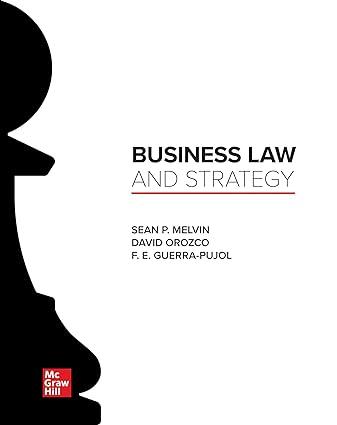The plaintiff, Cooperatieve Centrale Raiffeisen-Boerenleenbank B.A. (the Bank) sued the maker of the note, William Bailey, M.D.
Question:
The plaintiff, Cooperatieve Centrale Raiffeisen-Boerenleenbank B.A. (“the
Bank”) sued the maker of the note, William Bailey, M.D. (“Bailey”). Bailey had
executed the note in favor of “California Dreamstreet,” a cattle-breeding
operation seeking investment. California Dreamstreet negotiated the note to the
Bank. When Bailey failed to pay on the note, the Bank sued for payment. Bailey
claimed the instrument was not negotiable.
The note states in relevant part:
DR. WILLIAM H. BAILEY . . . hereby promises to pay to the order to
CALIFORNIA DREAMSTREET . . . the sum of Three Hundred Twenty
Nine Thousand Eight Hundred ($329,800.00) Dollars. . . .
The sole issue for the court to decide was whether the unusual language in the
note obliging Bailey to “pay to the order to California Dreamstreet” rendered the
note nonnegotiable.
The court held that “pay to the order to” was akin to “payable to the order of,”
and the instrument was therefore a negotiable instrument.
CASE QUESTIONS
1. Do you agree with the court that “pay to the order to” was
equivalent to “payable to the order of”? Why or why not?
2. What do you think motivated the court’s decision in this case?
Step by Step Answer:

Business Law And Strategy
ISBN: 9780077614683
1st Edition
Authors: Sean Melvin, David Orozco, F E Guerra Pujol





